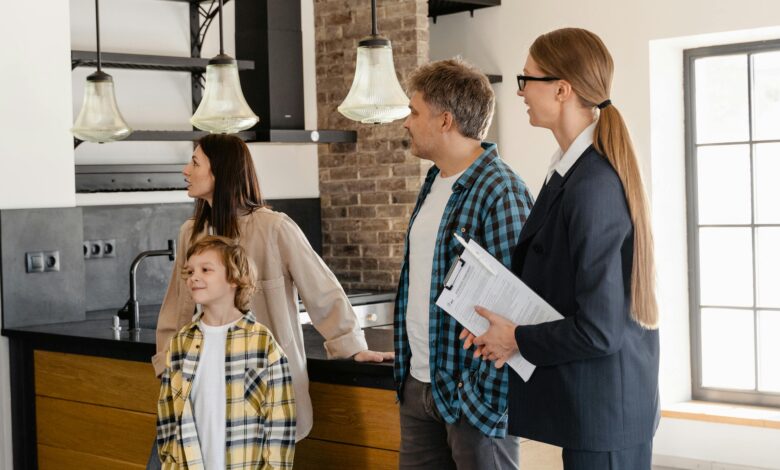The Best Tips for Buying a Second Home

Purchasing a second home is an exciting milestone, whether you’re looking for a vacation retreat, a rental property, or a future retirement residence. However, buying a second home comes with unique challenges and considerations that differ from purchasing a primary residence. From financing to location selection, it’s essential to approach this decision thoughtfully and strategically. In this article, we’ll provide the best tips for buying a second home to help you make an informed and confident investment.
1. Determine Your Purpose for the Second Home
Before diving into the home-buying process, clarify why you’re purchasing a second home. Your purpose will influence key decisions such as location, size, and budget. Common reasons for buying a second home include:
- Vacation Property : A getaway spot for personal use.
- Rental Income : A property to generate passive income through short-term (e.g., Airbnb) or long-term rentals.
- Retirement Planning : A future primary residence for when you retire.
- Investment : A property intended to appreciate in value over time.
Understanding your goals will guide your search and ensure the property aligns with your needs.
2. Assess Your Financial Situation
Buying a second home typically requires a larger financial commitment than purchasing a primary residence. Here’s how to evaluate your financial readiness:
A. Down Payment
- Lenders often require a higher down payment for second homes—typically 20% or more—compared to primary residences.
- Save enough for the down payment, closing costs, and any renovations or furnishings the property may need.
B. Mortgage Rates
- Interest rates for second homes are usually higher than those for primary residences. Shop around for competitive rates and consider working with a mortgage broker who specializes in second-home loans.
C. Ongoing Costs
- Factor in property taxes, insurance, utilities, maintenance, and homeowners association (HOA) fees if applicable.
- If renting out the property, account for management fees, cleaning services, and potential vacancy periods.
D. Emergency Fund
- Maintain a financial cushion to cover unexpected expenses, such as repairs or prolonged vacancies.
3. Choose the Right Location
The location of your second home is critical to its success, especially if you plan to rent it out or use it frequently. Consider the following factors:
A. Proximity
- Decide whether you want the property to be close to your primary residence for convenience or farther away for a true escape.
- For rental properties, proximity to popular attractions, beaches, or urban centers can increase demand.
B. Accessibility
- Ensure the property is easily accessible by car, plane, or public transportation, depending on how you plan to use it.
C. Climate and Environment
- Think about the climate and seasonal appeal of the area. For example, mountain homes may attract winter visitors, while beachfront properties are ideal for summer vacations.
D. Future Growth Potential
- Research the local real estate market to assess whether property values are likely to appreciate over time.
4. Understand Tax Implications
Owning a second home has specific tax considerations that can impact your finances:
A. Mortgage Interest Deduction
- You may be able to deduct mortgage interest on your second home, but there are limits based on the total amount of debt secured by your homes.
B. Rental Income Taxes
- If you rent out the property, the income is taxable. However, you can deduct expenses like repairs, maintenance, and depreciation.
C. Capital Gains Tax
- When selling a second home, you may owe capital gains tax on any profit unless you meet certain exemptions (e.g., using it as your primary residence for two of the last five years).
Consult a tax professional to understand how owning a second home will affect your tax situation.
5. Insure Your Investment
Proper insurance is crucial for protecting your second home. Depending on the property’s location and intended use, you may need specialized coverage:
- Vacant Home Insurance : If the property will sit empty for extended periods, standard homeowner’s insurance may not suffice.
- Flood or Earthquake Insurance : Properties in high-risk areas may require additional policies.
- Short-Term Rental Insurance : If you plan to list the home on platforms like Airbnb, ensure your policy covers guest-related incidents.
6. Plan for Property Management
If you won’t be using the second home full-time, you’ll need a plan for managing it:
A. Self-Management
- Handle tasks like cleaning, maintenance, and tenant communication yourself if you live nearby or visit regularly.
B. Hiring a Property Manager
- For remote owners or rental properties, hiring a professional property manager can save time and ensure smooth operations. Expect to pay 10-20% of rental income for their services.
C. Smart Home Technology
- Install smart locks, thermostats, and security cameras to monitor and manage the property remotely.
7. Evaluate Rental Potential (If Applicable)
If generating rental income is part of your plan, research the local rental market thoroughly:
- Demand : Look at occupancy rates and average nightly or monthly rents in the area.
- Competition : Analyze similar properties to determine what amenities and pricing strategies will make yours competitive.
- Regulations : Check local laws regarding short-term rentals, zoning restrictions, and HOA rules.
8. Visit the Property Before Buying
Never purchase a second home sight unseen. Visiting the property allows you to:
- Inspect its condition and identify potential issues.
- Get a feel for the neighborhood and surrounding amenities.
- Verify that the property meets your expectations for comfort and functionality.
9. Work with Experienced Professionals
Navigating the complexities of buying a second home requires expert guidance:
- Real Estate Agent : Choose an agent familiar with the local market and experienced in second-home purchases.
- Home Inspector : Conduct a thorough inspection to uncover hidden problems before finalizing the deal.
- Attorney : Hire a real estate attorney to review contracts and ensure a smooth transaction.
10. Consider Long-Term Goals
Think about how your needs might change over time:
- Will you eventually move into the second home permanently?
- Could it serve as a legacy property passed down to family members?
- Is it a stepping stone toward other investments?
Aligning the purchase with your long-term vision ensures the property remains valuable and relevant to your lifestyle.


